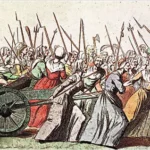Unveiling the tapestry of history’s grand narrative, “Unraveling Major Historical Events Through Time” embarks on a journey to illuminate the pivotal moments that have shaped our world.
Key Takeaways:
- The end of the Western Roman Empire marked a significant turning point in European history.
- Columbus’s discovery of the Americas permanently altered the course of exploration and shifted global power.
- The Reformation challenged religious authority and sparked religious wars.
- The American Revolution established the United States and inspired other colonies to seek independence.
- The French Revolution overthrew monarchy and ushered in democratic ideals.
- World War I’s staggering casualties and political upheaval reshaped international relations.
- The Russian Revolution established the first communist state and had far-reaching political consequences.
- World War II’s devastation led to the nuclear age and the rise of the superpowers.
- The Black Death had profound societal and economic impacts on medieval society.
- Pearl Harbor’s attack prompted the United States to enter World War II and played a pivotal role in the Pacific War.
- The Holocaust’s atrocities and the creation of Israel highlighted the horrors of war and prejudice.
Major Historical Events
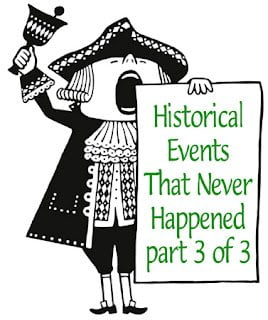
Across the vast tapestry of time, certain major historical events stand out as pivotal moments that have shaped the course of human civilization. These events have left an indelible mark on our societies, cultures, and technologies, serving as catalysts for societal shifts, innovations, and the rise and fall of empires.
One of the earliest and most profound major historical events was the rise of ancient civilizations. Around 3500-500 BCE, civilizations emerged in Mesopotamia, Egypt, India, China, and other regions, laying the foundation for written communication, agriculture, and social structures.
The Greek and Roman Empires, which flourished from 800 BCE to 476 CE, left a lasting legacy of cultural and military prowess. From Athens’ contributions to philosophy and art to Rome’s advancements in law and infrastructure, these empires shaped the intellectual and political landscape of Europe and beyond.
The Middle Ages, spanning from 476 to 1485, witnessed the rise of feudalism and the Catholic Church in Europe. Crusades and the spread of Islam further influenced the political and religious dynamics of the era, while the Renaissance and the revival of classical learning paved the way for a new age of intellectual and artistic achievements.
The Age of Exploration, from 1492 to 1660, marked the beginning of European exploration and colonization, transforming global trade and the interconnectedness of the world. The American and French Revolutions, from 1776 to 1789, ignited ideals of democracy and self-governance, inspiring revolutions worldwide.
The Industrial Revolution, from 1760 to 1840, ushered in an era of technological advancements and economic growth, leading to mass production and urbanization. World Wars I and II, from 1914 to 1945, were devastating conflicts that reshaped global power dynamics and shattered the world order.
The emergence of the Cold War, from 1947 to 1991, marked a period of intense ideological and geopolitical rivalry between the United States and the Soviet Union. The Information Age, from 1970 to the present, has been characterized by the rise of computers, the internet, and globalization, leading to unprecedented information sharing and technological advancements.
These major historical events have left a profound legacy on the world, shaping our political institutions, economic structures, societal values, and scientific understanding. By studying and understanding these pivotal moments, we gain valuable insights into our past and the forces that continue to drive human history.
Would you like to know the ancient world’s history of the world? Or have you ever wondered about the great ancient civilizations](../ancient-civilizations)? Let’s dive deep into the past. Do you want to see how humans developed through time and significant historical events? Explore our world history timeline and learn all about it.
The Middle Ages
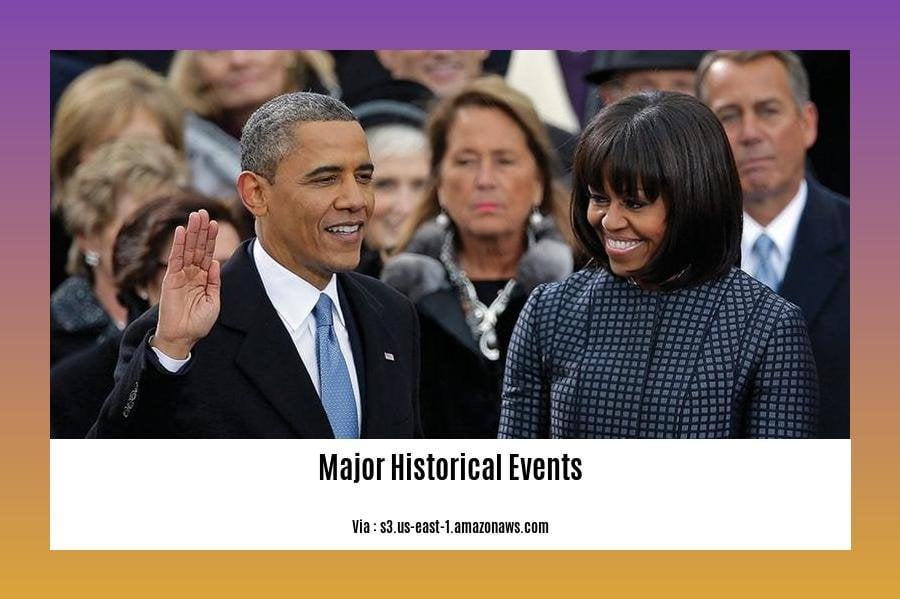
For almost a millennium, The Middle Ages spanned a vast and tumultuous period in European history, deeply shaping the world we live in today.
Political and Military:
– Collapse of the Roman Empire left a power vacuum, giving rise to feudalism and the emergence of small, independent kingdoms.
– The Middle Ages witnessed the rise of Islam, leaving a profound mark on Europe, the Middle East, and North Africa.
– Charles “The Hammer’s” victory at the Battle of Tours (732 AD) halted the northward advance of Islam.
– Charlemagne, crowned Emperor of the Romans, briefly united much of Western Europe.
– The Treaty of Verdun (843 AD) divided Charlemagne’s empire into three separate kingdoms.
– The Holy Roman Empire of Germany emerged as a powerful force in central Europe.
– The Battle of Hastings (1066 AD) marked the Norman conquest of England, bringing significant changes to English society and culture.
Social and Cultural:
– The Great Famine (1315-1322) and the Black Death (1347-1351) devastated Europe, killing millions and reshaping social and economic structures.
– The Magna Carta (1215 AD) established the principle that even the king was subject to the law.
– The Anno Domini calendar, invented in 525 AD, became the standard for dating events in the Western world.
– St. Columba founded the monastery on Iona (563 AD), becoming a center of Christian learning in Scotland.
– Gregory the Great’s papacy (590-604 AD) marked a significant period of growth and influence for the Catholic Church.
– The Tang Dynasty (618-907 AD) ushered in a golden age for China, marked by advances in art, literature, and technology.
– Hegira (622 AD) marked the beginning of the Islamic calendar.
– Islamic conquests spread Islam from the Arabian Peninsula to Persia, North Africa, and parts of Europe.
– Buddhism became the official religion of China (622 AD).
Key Takeaways:
– The Middle Ages was a time of both great upheaval and significant cultural and social change.
– The rise and fall of empires, the spread of new religions, and the emergence of new political systems shaped the course of European history.
– The legacy of The Middle Ages can still be seen in our laws, institutions, and cultural values.
Source: Major Events During the Middle Ages
The Age of Exploration
The Age of Exploration, fueled by the quest for riches, the discovery of new trade routes, and the hunger for knowledge, left an indelible mark on human history.
During this era, European explorers embarked on perilous journeys across vast oceans, uncovering new lands and cultures.
Their discoveries revolutionized geography, sparked scientific advancements, and led to the establishment of global trade networks.
Key Takeaways:
- Driven by economic ambition, curiosity, and technological advancements
- Led to geographical discoveries, scientific advancements, and cultural exchange
- Resulted in colonization, global trade, and the exchange of ideas
- Expanded European knowledge of the world and paved the way for further exploration and scientific inquiry
Most Relevant URL Source:
The American and French Revolutions
The American and French Revolutions were two pivotal events that reshaped the political landscape of the world. Let’s dive into their similarities and differences:
Similarities:
- Both revolutions occurred in the 18th century, sparked by Enlightenment ideals.
- Both revolutions sought to establish democratic governments.
- Both revolutions inspired uprisings and revolutions worldwide.
Differences:
- Violence and Terror: The French Revolution was marked by widespread violence and terror, while the American Revolution was relatively peaceful.
- Leadership: In France, many revolutionary leaders were executed. In America, they established a new government.
- Intellectual Influences: The French Revolution was influenced by Rousseau’s ideas on popular sovereignty. The American Revolution drew from Locke’s ideas on natural rights.
- Social Structure: The French Revolution sought to overthrow the aristocracy. The American Revolution aimed at breaking away from British rule.
These revolutions left a lasting impact on the world, demonstrating the power of popular uprisings and shaping the development of modern democracy.
Key Takeaways:
- American and French Revolutions: Major revolutions inspired by Enlightenment ideals.
- Violence and Terror: French Revolution marked by widespread violence, while American Revolution relatively peaceful.
- Leadership: French leaders executed, while American leaders established new government.
- Intellectual Influences: Rousseau’s ideas influenced French Revolution, Locke’s ideas shaped American Revolution.
- Social Structure: French Revolution sought to overthrow aristocracy, while American Revolution targeted British rule.
Most Relevant URL Source:
FAQ
Q1: What are some of the major turning points in world history that have had a lasting impact?
A1: Major historical events such as the deposition of Romulus Augustulus in 476, the discovery of the Americas in 1492, the Protestant Reformation in 1517, the American Revolution in 1773, the French Revolution in 1789, and the development of the atomic bomb in 1945 have profoundly altered the course of human history.
Q2: How can we learn from the mistakes and successes of past civilizations?
A2: By studying major historical events, we can gain valuable insights into the factors that contribute to societal progress and decline. Analyzing historical trends helps us make informed decisions and avoid repeating past errors.
Q3: What role do major historical events play in shaping our present-day world?
A3: Major historical events leave an enduring legacy, influencing our political systems, social structures, and cultural values. Understanding these events provides context for current events and helps us appreciate the complex web of factors that have shaped the world we live in.
Q4: How have technological advancements impacted the course of major historical events?
A4: Technological breakthroughs, such as the invention of the printing press or the development of the internet, have played a significant role in shaping historical events. They have facilitated the spread of ideas, accelerated social change, and transformed the way wars are fought.
Q5: What are the ethical implications of studying and interpreting major historical events?
A5: Historians have a responsibility to approach historical events with objectivity and integrity. It is essential to consider multiple perspectives, acknowledge biases, and avoid distorting the past for political or ideological reasons. Ethical considerations ensure that historical narratives accurately reflect the complexities of human experience.
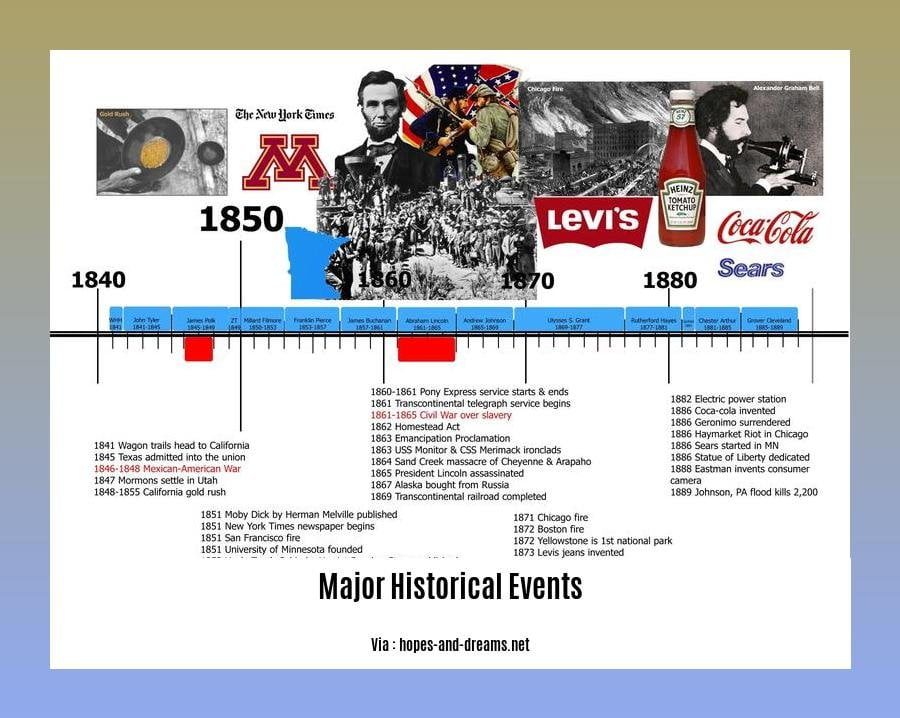
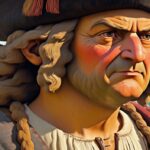



![A Historical Overview of the Church: Tracing Its Evolution Through the Ages [History of the Church Summary] history-of-the-church-summary_2](https://www.lolaapp.com/wp-content/uploads/2023/12/history-of-the-church-summary_2-150x150.jpg)
